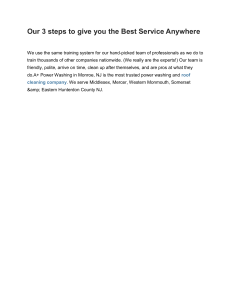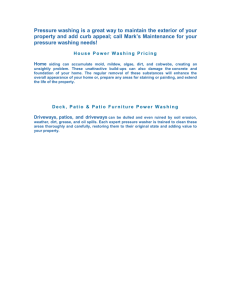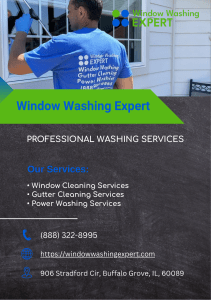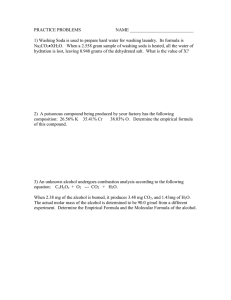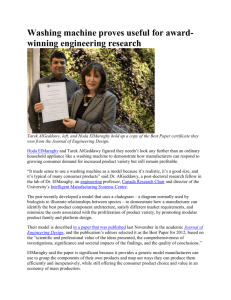Strategies for Successful Pressure Washing Marketing Reaching Customers and Driving Growth
advertisement
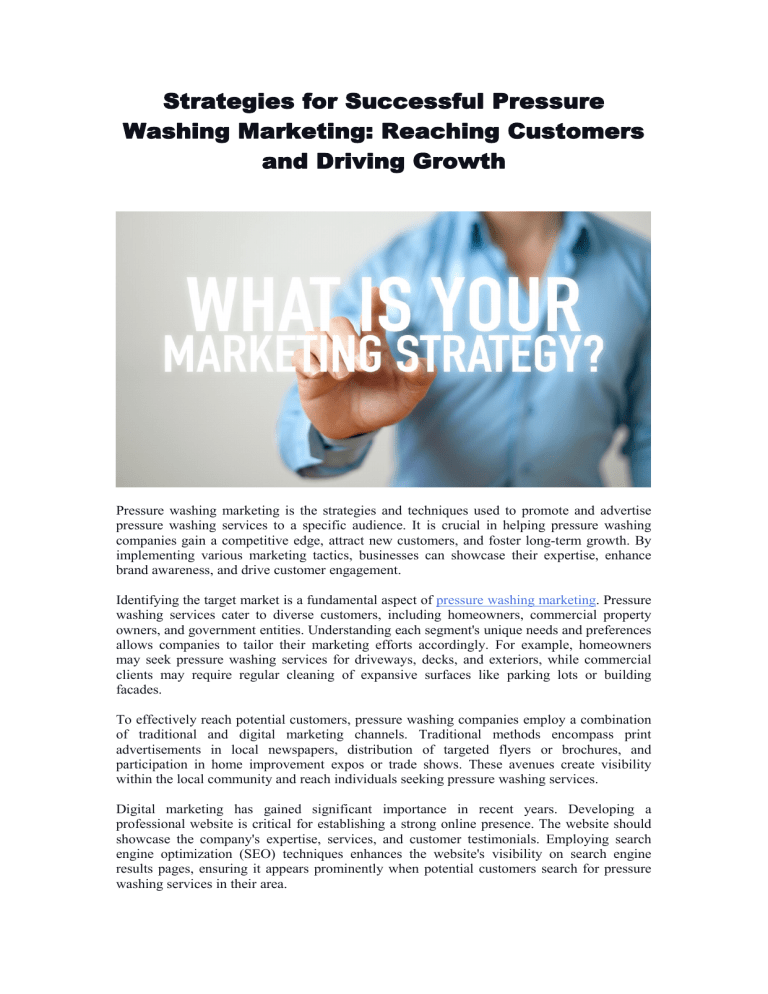
Strategies for Successful Pressure Washing Marketing: Reaching Customers and Driving Growth Pressure washing marketing is the strategies and techniques used to promote and advertise pressure washing services to a specific audience. It is crucial in helping pressure washing companies gain a competitive edge, attract new customers, and foster long-term growth. By implementing various marketing tactics, businesses can showcase their expertise, enhance brand awareness, and drive customer engagement. Identifying the target market is a fundamental aspect of pressure washing marketing. Pressure washing services cater to diverse customers, including homeowners, commercial property owners, and government entities. Understanding each segment's unique needs and preferences allows companies to tailor their marketing efforts accordingly. For example, homeowners may seek pressure washing services for driveways, decks, and exteriors, while commercial clients may require regular cleaning of expansive surfaces like parking lots or building facades. To effectively reach potential customers, pressure washing companies employ a combination of traditional and digital marketing channels. Traditional methods encompass print advertisements in local newspapers, distribution of targeted flyers or brochures, and participation in home improvement expos or trade shows. These avenues create visibility within the local community and reach individuals seeking pressure washing services. Digital marketing has gained significant importance in recent years. Developing a professional website is critical for establishing a strong online presence. The website should showcase the company's expertise, services, and customer testimonials. Employing search engine optimization (SEO) techniques enhances the website's visibility on search engine results pages, ensuring it appears prominently when potential customers search for pressure washing services in their area. Social media platforms are vital for pressure washing marketing. Companies can create business profiles on platforms like Facebook, Instagram, and LinkedIn to engage with the target audience. Sharing compelling content such as before-and-after pictures and helpful maintenance tips and running targeted advertising campaigns generate leads and foster brand loyalty. Social media facilitates direct customer interaction, allowing companies to address inquiries, provide estimates, and receive feedback. Word-of-mouth marketing remains a powerful tool in the pressure washing industry. Satisfied customers can become brand advocates by sharing positive experiences with their social circles. Pressure washing companies can offer referral incentives like discounts or free services to encourage this. Additionally, companies can request customers to provide online reviews and ratings, boosting credibility and influencing potential customers' purchasing decisions. Networking and building relationships with local businesses can also benefit pressure washing marketing efforts. Collaborating with real estate agents, property management companies, or construction contractors can generate steady referrals. By establishing strategic partnerships, pressure washing companies can tap into new customer bases and expand their reach. In conclusion, effective pressure washing marketing requires a combination of traditional and digital strategies to target and engage potential customers. Identifying the target market, establishing a strong online presence, leveraging social media platforms, encouraging wordof-mouth marketing, and forging partnerships with complementary businesses are essential elements of a successful marketing campaign. By investing in strategic marketing efforts, pressure washing companies can differentiate themselves, expand their customer base, and achieve sustainable business growth.
